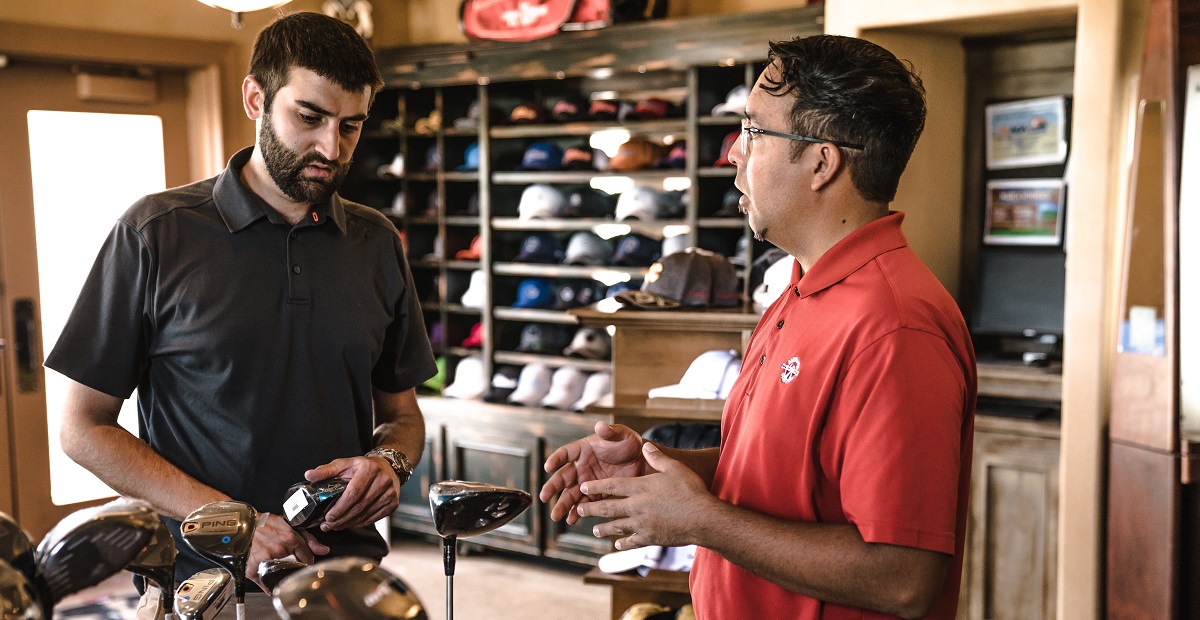Customer service skills are needed to boost your success in virtually any career. No matter which industry you join, you will probably have to deal with customers. Whether you are an executive or junior employee, having the ability to resolve customer issues and make unhappy customer turn their smile upside down is extremely valuable.
Great customer service abilities can help you find effective solutions to customer problems, form long-term cohesive relationships with clients, and much more. Unlocking your customer service skills doesn’t have to be complicated or costly. In fact, understanding your innate strengths is a crucial first step. The HIGH5 strengths test is an excellent tool for identifying your natural talents that can be applied to customer service. By leveraging these strengths, you can develop a unique approach to customer interactions that feels authentic and effective.
In this article, we will cover what effective customer service skills look like and how you can acquire them.

What is Customer Service Representative?
Before you can focus on acquiring excellent customer service abilities, you must understand what customer service entails. Customer service is providing both your current customers and potential clients with the products and services they need. As you can see, the definition is quite broad. This is why customer service looks different for every client and every company.
In general, if you are dealing with customers on a direct basis, you are performing some customer service activities. You could be helping clients select a product, explaining why certain products benefit a client or any other similar task.
Most companies understand that exceptional customer service can turn a frustrated customer into one of their top clients. It is fantastic for the business’s bottom line!
Any interactions with customers, or anyone interested in your company’s products, require some level of customer service understanding. Whether you are dealing with a happy or heated customer, you will still need to use these skills.
Why Is Important To Recognize Customer Service Skills & Their Benefits
Even if you’re not a customer service representative, focusing on building these skills is crucial. While it may not be immediately obvious, strong customer service abilities can help you in numerous ways. The HIGH5 strengths test can be instrumental in this process, helping you identify your natural talents that align with excellent customer service. By understanding your strengths, you can tailor your approach to customer interactions, making them more genuine and effective. This personalized strategy not only enhances your customer service skills but also boosts your overall professional performance.
You will be more positively viewed in the eyes of customers, regardless of your industry or position. As such, you can gain many important benefits by becoming better at using your customer service skills.
Some of the top benefits you can expect to gain include:
- A greater brand awareness, a positive business reputation, and more customer recommendations
- Gives you a competitive advantage over other employees
- Allows you to present yourself in an effective way during interviews (and boosts the quality)
- Allows you to build positive long-term relationships with clients (so they become repeat buyers)
- Boosts your confidence, which can translate to your personal life and other jobs
- Boosts retention rates for employees and reduces employee turnover
- Makes you more positive and passionate about your work
- Allows you to increase revenue and profits
- Increases your odds of success in your industry and helps you stay positive through failures
- Allows customers to have more positive experiences, which leads to positive reviews and more brand loyalty
Pro Tip From HIGH5
After identifying your strengths through the HIGH5 test, create a personal development plan that focuses on applying these strengths to enhance specific customer service skills. This targeted approach can accelerate your growth and make you stand out in your role.

10 Examples of Customer Service Skills
Customer service skills encompass a broad category of abilities, with numerous distinct competencies contributing to overall customer service excellence. The HIGH5 strengths test can help you identify which of these skills come naturally to you. For instance, you might discover that adaptability or empathy are among your top strengths. By recognizing and leveraging these innate talents, you can develop a unique customer service style that plays to your strengths, making you more effective and confident in your interactions with clients.
To truly create the best customer service strategy, you should recognize the importance of all the skills listed below.
Specifically, some of the top examples of customer service skills include:
Adaptability
Being stagnant as an employee or business owner is a recipe for disaster. With technology, the markets and customer demands are constantly changing. Being able to adapt is crucial for not only effective customer service but staying successful as an employee or entrepreneur in general.
Being adaptable can help you acquire a competitive advantage over other companies or employees. It boosts your odds of success.
Active Listening Skills
Being an active listener is key to succeeding in customer service. Being a fantastic customer support representative is about so much more than just talking convincingly and being informative. It is also about listening to the customer’s thoughts, feelings, and desires.
You have to listen in depth and show you genuinely care about what your customer has to say. This soft skill will be highly useful in becoming a great customer service rep.
Service or Product Knowledge
You will also need to ensure you are knowledgeable about your product or service. If you do not know why a client would need your product, you cannot effectively pitch it. This would leave clients confused and uninterested, while you would seem unprofessional.
Thus, avoid awkward moments of silence and learn about your product. Think about it from the customer’s perspective: what would they gain from this product or service? Why would it be needed?
Quick Thinking
When trying to be an effective customer support employee, focus on improving your quick thinking abilities. If a client gives you some information on their desires or input about their needs, you cannot spend hours deliberating what to do next.
A customer’s time is valuable, and you have to be quick thinking to maximize efficiency. Quick thinking can also help you deal with dissatisfied customers with high productivity.
Conflict Resolution
Bad customer service abilities often lead to issues with customers. If you are a manager or simply want to look out for your company, you must ensure you pay attention to conflicts. Conflicts can give your brand a negative reputation, leading to poor reviews, lost money, and more negativity. If you can resolve conflicts, you can turn an angry customer into one who is calmer, potentially turning them into repeating customers.
Reading Body Language
Often, customers will not directly tell you what they think. They may even tell you one thing but mean something else entirely. This is why ready body language cues are so important. It can give you a deeper insight into what your client desires and how you are performing as a communicator.
For instance, if your customer is looking away while you are describing your products notice where they are looking to see what draws their attention. Change the way you communicate with that particular client.
Being Friendly
No matter what your approach to customer service is, you have to be friendly while communicating. Nobody wants to communicate with or receive help from someone who seems miserable. Remember that your attitude is contagious.
So, if you are negative, the client is unlikely to be excited about your product. On the other hand, if you are positive and friendly, the client is more likely to be energized and interested in your product or service.
Empathy
Empathy is an important social skill to have when speaking to customers. It allows you to connect with individuals on a deeper, more emotional level.
When you can make an emotional appeal to one of your clients, you are far more likely to be remembered by them. This increases the likelihood that the client purchases your product or service. Plus, empathy can make you more positive, which rubs off on your customers.
Creativity
Being creative as someone who communicates with clients is crucially important. Customers interact with countless companies on a daily basis. If you use standard communication approaches, you will be easily forgotten.
On the other hand, being unique and creative will allow you to stand out from the crowd. This allows you to gain a competitive advantage and increase your profitability.
Effective Communication
In customer service, language is your best friend. The way you present information is just as important as the information you are presenting. For example, if you use a negative tone and have little energy your clients will become uninterested in your message.
Those who use tons of energy, pay attention to their client’s reactions and know how to communicate effectively, in general, see the most success.
Pro Tip From HIGH5
Once you’ve identified your top strengths using the HIGH5 test, look for ways to apply them creatively across different customer service skills. For example, if ‘creativity’ is one of your strengths, use it not just for problem-solving but also in how you communicate with customers or manage conflicts.
How To Identify & Develop Customer Service Skills?
Now that you’re familiar with the various types of customer service abilities, you might be wondering how to acquire and develop these skills effectively. While some believe it’s only possible through years of industry training, the reality is that everyone has natural strengths that can be applied to customer service. The HIGH5 strengths test is an invaluable tool in this process. By taking this assessment, you can quickly identify your innate talents and understand how they relate to customer service. This self-awareness allows you to focus on developing skills that align with your natural strengths, making the learning process more efficient and enjoyable.
Others believe only those who are naturally born great communicators can succeed with customer service. However, neither of these ideas is true. Anyone can unlock and grow their customer service skills.
In fact, one of the greatest ways to do this is completely free and widely accessible: online tests. There are numerous tests available online that can test your strengths in general, or specifically your customer service skills.
One great test to seek out is called HIGH5. This assessment will give you a clear overview of your strengths and existing customer service skills. Then, you can use this information to further develop these skills.
In addition, you should also consider speaking to your clients directly. If your company has a customer feedback program, encourage individuals to leave feedback on your performance. That way, you can directly see which customer care skills you lack and which are well-developed.
You could even ask your boss or senior coworkers to see if they have any customer service advice and thoughts on your performance.
Pro Tip From HIGH5
After taking the HIGH5 test, create practice scenarios that allow you to apply your identified strengths to customer service situations. This hands-on approach will help you develop your skills more effectively and build confidence in using your natural talents in real-world interactions.

How To Improve Customer Service Skills in The Workplace
After taking the HIGH5 test and exploring your customer feedback, the next step of becoming better at customer service is looking for ways to improve.
But how can you boost your skills? One of the greatest ways to do this is simply through practice. You need to be more comfortable with putting yourself out there and being willing to try new things.
For example, you may not feel too confident when you first start direct communication with customers. However, take any opportunity you can to learn from your clients and grab any chance to practice your skills. After helping a client, see if there is a way to go above and beyond.
Many individuals find success in growing their customer service skills by using personalized interactions. The best customer service reps do not use a recycled script. They make sure to remember every repeat client’s precise wants.
Plus, they also change their communication style depending on who they are talking to. Any way to increase customer satisfaction is harnessed.
In general, more customer interactions give you more opportunities to learn, get input from clients, and get a boost in confidence from seeing the customer engagement you can create.
Put yourself in difficult situations occasionally, so you get the chance to use your adaptability and creativity skills. This also helps you get out of your comfort zone and allows you to apply your skills in unique scenarios.
How To Highlight Customer Service Skills In Resume & Job Interview
Customer service skills are in demand in nearly every industry. Nearly every business wants to boost its customer retention rates, client referrals, business ratings, and more.
Having employees who know how to make clients satisfied with excellent communication skills and amazing industry knowledge is fantastic for any company. So, how can you highlight your customer service skills to land your dream job?
One way to do this is by adding your customer service skills to your resume. However, simply saying you have amazing customer service abilities will not make any HR manager impressed.
Instead, you have to prove you know how to communicate with customers. Try to use the power of storytelling, both in your resume and during the interview. Give specific examples of times you used your strengths to help customers.
Businesses love specifics, so if you have data to support your strength claim, use it. For instance, you could bring data showing 95% of customers rated you above average in communication if your old customer support team had a client input system.
If you can give references, that is fantastic as well. Have others support your claim and verify you truly have these abilities whenever possible. If you are confused about where to place your skills on your resume, you could do one of two things.
First, you could create a list of your top skills and include customer service (with examples for each of your top strengths). Or, you could list customer service skills as a requirement for some of your past jobs. Also, explain how you used customer service abilities during your prior work experiences.
What is the Main Difference Between Soft & Hard Customer Skills?
In general, soft skills are abilities that are difficult to measure. They are closely related to your personality, and cannot be easily taught. For instance, empathy and time management would be considered soft skills. Hard skills are essentially technical skills. They include forge in language speaking, coding, marketing, and anything that can be taught in a non-social/emotional way.
When it comes to customer service skills, in particular, they can be further categorized into soft and hard skills. Most customer service abilities are closely related to soft skills. For example, you truly cannot learn to be empathetic, friendly, a great communicator, a body-language reader, and so on through a technical college course. These skills are acquired through experience and your existing personality traits.
On the other hand, some of the skills needed for customer service are technical. Customer service software skills, managing the cloud, using telephone communication services, some data analysis, and other technical skills can all be classified as hard skills that are also crucially important for customer service.
Customer Service Skills FAQs
What Are The 3 Essential Qualities Of Customer Service?
There are numerous different traits that set amazing customer service team members apart from mediocre ones. For instance, you need to be creative. Customers will deal with thousands of companies throughout their lives. You need to be memorable for them to want to return. So, being creative and strategic will help you in the long run.
You must also be willing to adapt. Being adaptable helps you effectively manage customer complaints and deal with customer dissatisfaction efficiently. Finally, you must be friendly. Positivity and friendliness rub off positively on clients. It puts them in a good mood and gives the client a great first impression of your company.
How Do I Describe My Customer Service Skills?
Customer service skills is an umbrella term. It encapsulates numerous different skill types. One way to describe your customer service skills is by getting more specific on which skills you actually have. Is it active listening? The quick thinking of conflict resolution? Maybe you are skilled at retaining product knowledge.
Regardless, get specific on your specific customer service skillset. Then, describe how you use your skills. Which medium do you use to communicate with customers? Also, consider your experience with customer service and which industries/product categories you specialize in. Include that information in your description, too.






